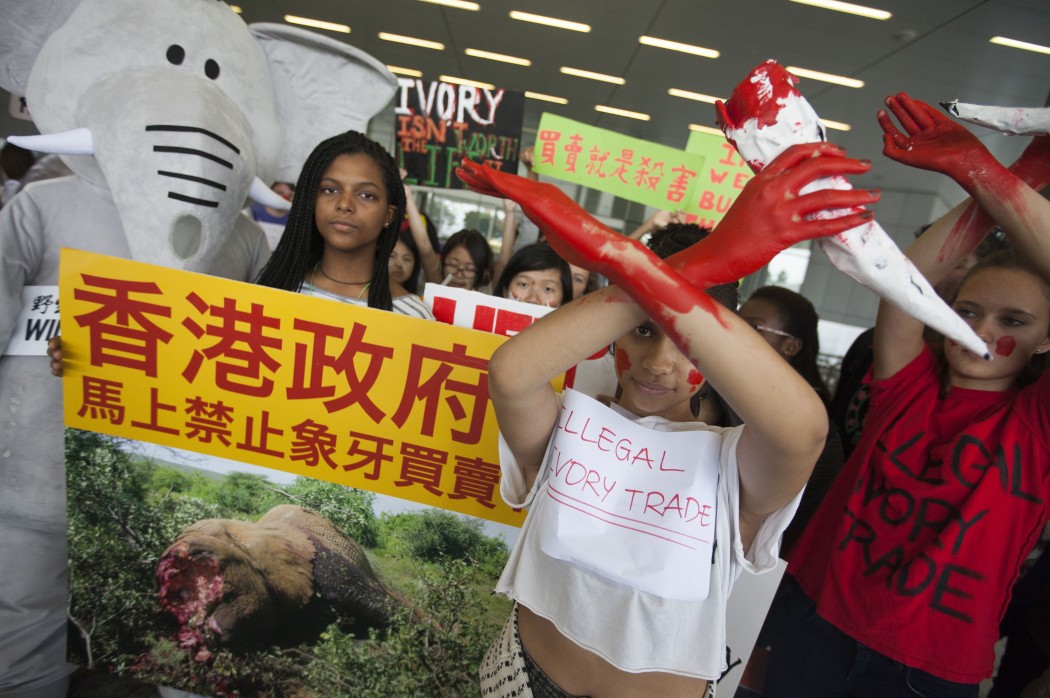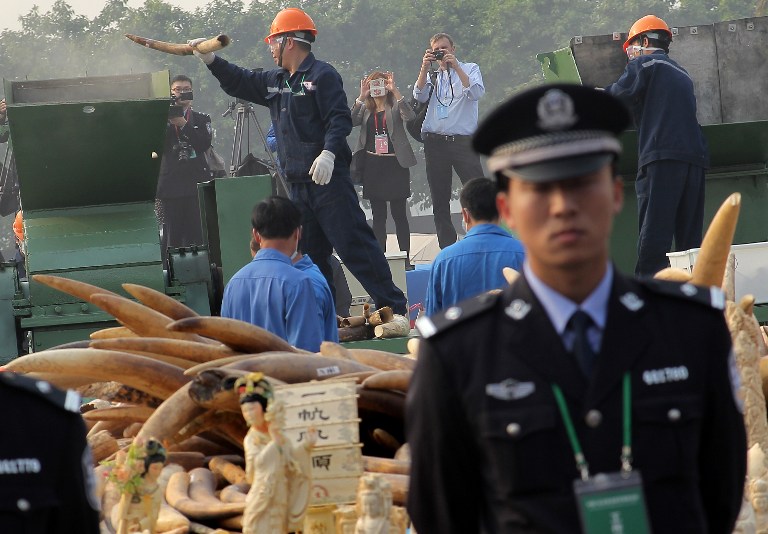China has said it will ban the processing and sale of ivory and ivory products by December 31, 2017. The country is the largest market for the sale of legal and illegal ivory.
The US-based Natural Resources Defense Council said the move may be “the biggest sign of hope for elephants since the current poaching crisis began.”

A notice published by the General Office of the State Council on Friday called for the strict management of the legal collection of ivory and ivory products, so that they can be legally tagged and displayed in museums, as well as transferred and inherited. Historical ivory relics, after being professionally verified by institutions, may be auctioned under strict monitoring after administrative approval.
As the ban comes into effect, the Chinese Ministry of Culture will help move those in the ivory industry to other sectors. Famous “master carvers” will be encouraged to preserve their skills by working in museums to maintain or repair antique pieces.
The notice added that law enforcement against the illegal sale, transport and smuggling of ivory should be increased, and promotion of “civilised” environmental ideas should be carried out to lead the public to boycott ivory, its products and illegal transactions.

Alex Hofford, Wildlife Campaigner at NGO WildAid told HKFP that the Chinese authorities should be commended and applauded in their efforts “which will likely save many elephants in years to come.”
“China’s bold move will likely put significant pressure on the Hong Kong government to speed up its own five year plan to kill off the ivory trade here. We now call on China to make similar strenuous efforts to crack down on its rhino horn trade,” he said.
US agreement
China agreed to phase out the sale and domestic manufacture of ivory last year as part of the 2016 U.S.-China Strategic and Economic (S&ED) Dialogue, though no timetable was set. The chief of China’s State Forestry Administration Zhao Shucong said at the time: “We will strictly control ivory processing and trade until the commercial processing and sale of ivory and its products are eventually halted.”

Meanwhile, Hong Kong said earlier this month that the sale of ivory that the local trade would be slowly phased out by 2021. Several ivory traders complained on Friday that they would need more time to sell off existing stocks, with some adding that they may seek legal action against the government.
Cheryl Lo, Senior Wildlife Crime Officer, at the Worldwide Fund for Nature said on Friday: “With China’s market closed, Hong Kong can become a preferred market for traffickers to launder illegal ivory under cover of the legal ivory trade. Hence WWF urges Hong Kong government and legislators to immediately speed up the process to ban the ivory trade as soon as possible.”
Additional reporting: Kris Cheng.
